Trip to Taiwan -- Visiting Peter Zhengfang Wang
Author: Yingxian Wang
My trip to Taipei took place just before Thanksgiving. Upon arriving at Taoyuan Airport in Taipei, I got on the MRT and heard station names being announced in very standard Mandarin, which reminded me so much of taking the subway in Beijing that I suddenly felt a bit disoriented… When I exited the MRT at Taipei Main Station to transfer to a bus, it was drizzling outside, and a wave of warm, humid air greeted me. Oh! This really is Taipei. The bus station was on Zhongxiao East Road, a bustling street filled with neon signs in traditional Chinese characters. People around me were speaking Mandarin with a Taiwanese accent. Everything felt somewhat unfamiliar, yet so friendly and familiar at the same time.
The purpose of my trip to Taiwan was to visit Mr. Peter Wang, with whom we have been collaborating for nearly six years. The entire story began with one of Mr. Wang Zhengfang’s books, A Decade of Struggles: A Naughty Boy. My cousin Wang Yun read the book in Beijing and discovered that the author’s father had experiences that closely overlapped with those of our grandfather. After some research, we confirmed that they were indeed both graduates of Beijing Normal University, studied under the same group of scholars, and worked at Beijing Normal University, the Chinese Dictionary Compilation Office, and Little Mandarin Daily. So many coincidences sparked our intense curiosity. We had known that our grandfather was one of the earliest contributors to The Contemporary Chinese Dictionary (the most authoritative dictionary in mainland China) and that he was a phonologist. Their dictionaries initially used Zhuyin symbols and later adopted Hanyu Pinyin, which evolved from the Zhuyin symbols still widely used in Taiwan today (my mother learned Zhuyin symbols as a child). Now, we’ve further discovered that The Contemporary Chinese Dictionary was originally The Mandarin Dictionary (still in use in Taiwan). (Please refer to Mr. Peter Wang’s article “Professor Li’s Disciples” for the story). But why had we never known that our grandfather was a significant figure in the National Language Movement and had close ties with the scholars and young teachers who went to Taiwan in 1948 to promote Mandarin? Out of respect for history and to honor our predecessors, my cousin Wang Yun and I wanted to restore this piece of history. Therefore, at the end of 2018, I registered a nonprofit, tax-exempt organization in the United States at both the federal and California state levels. Our aim is to document this little-known and increasingly forgotten piece of history.
On the second day in Taipei, Mr. Peter Wang warmly invited me to have dinner with him and his family. Although Mr. Wang has a background in engineering and once served as a university professor, he is better known as a director and writer. His most famous film is Beijing Story. Director Wang is as humorous and witty in person as he is in his works. He spoke fluent Beijing-accented Mandarin, which made me, as a Beijinger, feel a strong sense of familiarity. His wife, Shu Jing, whom he affectionately referred to as “the boss,” has an outstanding demeanor, exuding elegance and intellect. She spoke in a typically gentle Taiwanese tone and was very engaging in conversation. Also present was his wife’s sister, Ms. Shu Qian, a graduate of National Taiwan University’s Department of History. After figuring out our relative seniority, I addressed Mr. Wang as “Uncle Wang” and his wife as “Sister Jing.” Uncle Wang and Sister Jing chose an authentic Yunnan restaurant for dinner. The owner, a woman from Tengchong, Yunnan, served excellent dishes.
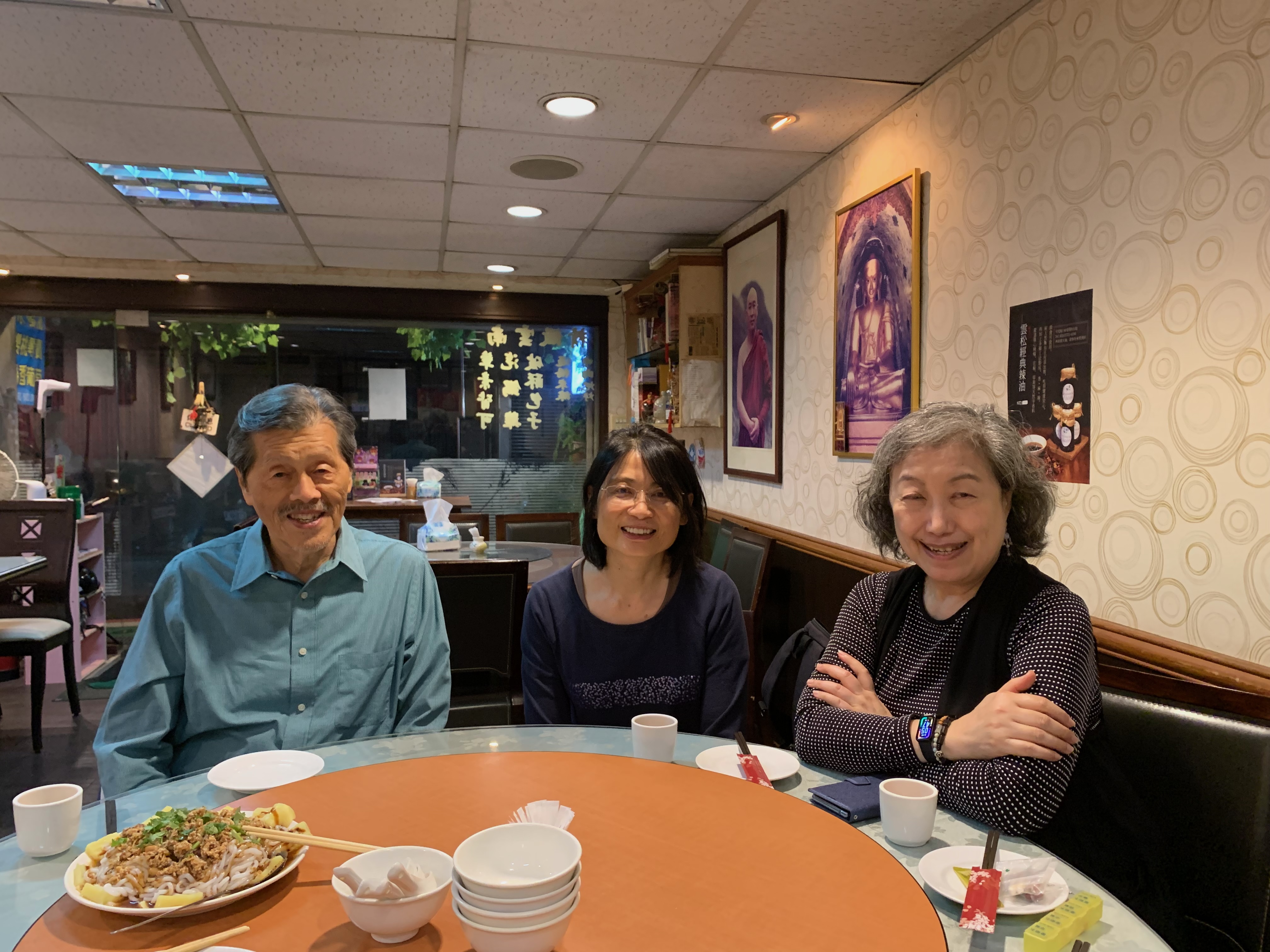
“With Uncle Wang and Sis Jing”
Originally, Wang Yun and I had planned to visit Uncle Wang in Taiwan in 2019 to gain a deeper understanding of the promotion of Mandarin in Taiwan. However, the plan was disrupted by the COVID-19 pandemic. We hoped to make the trip as soon as possible, but Wang Yun, who is based in mainland China, was never able to obtain a Taiwan travel permit.
During dinner, everyone was filled with emotion. Although only a few years have passed, many things now feel like they belong to another era. Five years ago, there were still close economic and civil exchanges between mainland China and Taiwan. Even though the pandemic has ended, civil exchanges remain at a standstill. Taiwan is undergoing a process of de-Sinicization. It is said that Chinese history classes in primary and secondary schools are being replaced with East Asian history, and classic Chinese cultural works like the Four Books and Five Classics and Tang and Song poetry are also being removed. Everyone expressed concern that if this trend continues, would Mandarin become nothing more than a soulless and cultureless tool?
To my surprise, Uncle Wang invited me to accompany him the next day to pay respects at the grave of his father, Professor Wang Shoukang. I was deeply honored. I already had many questions I wanted to ask him, so I readily agreed.
As the weekend approached, Shu Qian suggested that I visit San Min Bookstore and Eslite Bookstore, and if time allowed, also make a trip to the National Palace Museum. It had been many years since I last visited a bookstore. In recent years, I had been buying books directly from Amazon in the United States, especially e-books. The atmosphere at San Min Bookstore rekindled my past memories; the layout and categorization of the books were almost identical to how they were when I left mainland China. The dedicated sections for school entrance exams and study-abroad materials instantly transported me back to the 1990s at Wangfujing Bookstore.
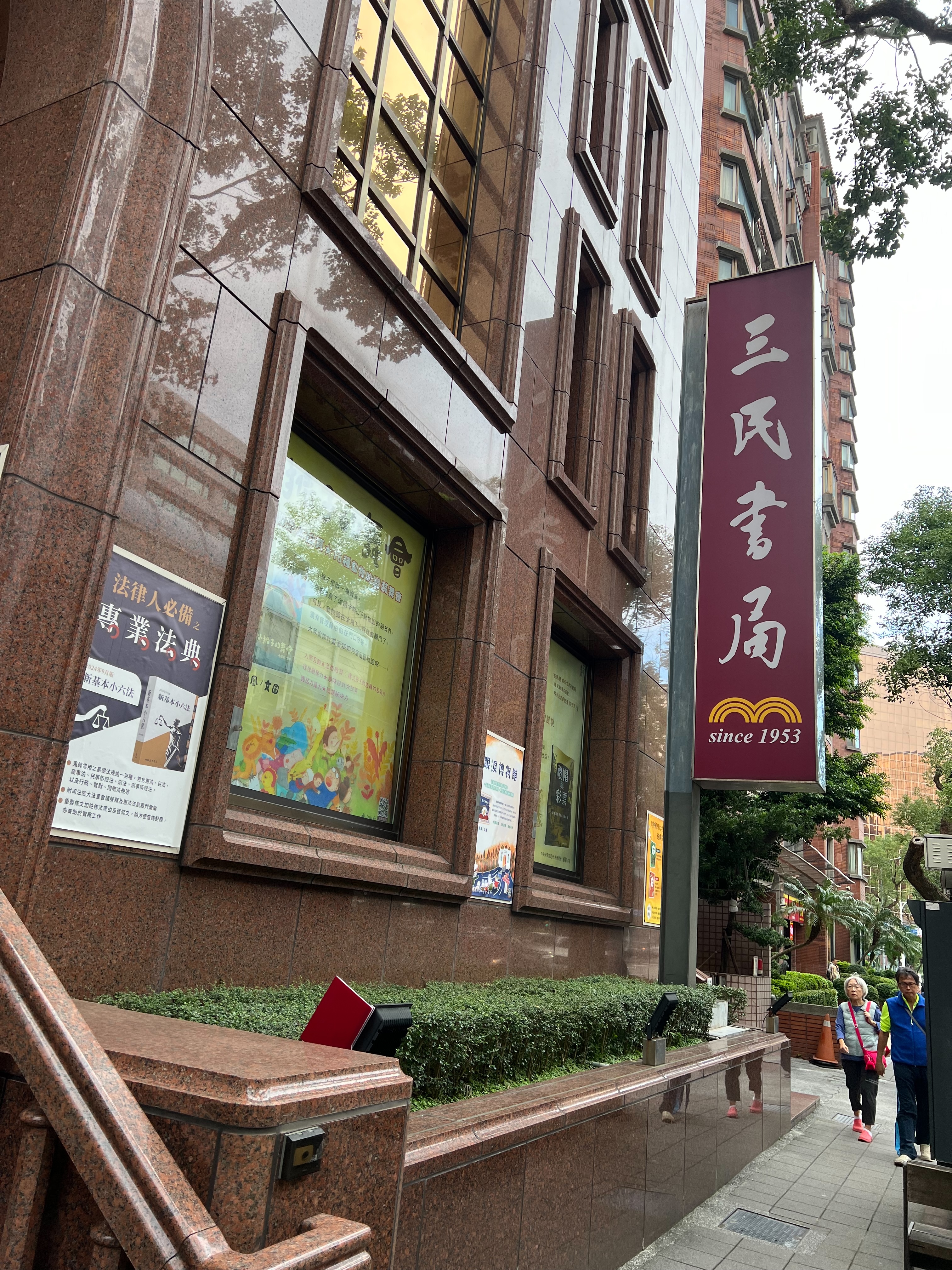
San Min Bookstore
On Sunday, I visited the National Palace Museum in Taipei. One piece of exciting news was shared by a staff member: next year, the Palace Museums in Beijing and Taipei will simultaneously host exhibitions to celebrate the 100th anniversary of the museum’s founding. The special exhibition during my visit featured Qing Dynasty princesses. Initially, I thought it would be a showcase aimed at young girls, but it left me with a profound impression. It turns out that the primary responsibility of Qing princesses throughout their lives was to marry members of other ethnic groups, thereby helping to consolidate the empire’s border regions. The exhibit provided detailed displays of their titles, clothing, photos, official wedding documents, and the stories of notable princesses.
Another fascinating special exhibit focused on ancient transportation maps. From primitive postal station diagrams to detailed modern maps, the evolution was truly awe-inspiring.
I also enjoyed an exhibit called “Stories Within Paintings,” which unraveled narratives embedded in artwork. One of the paintings is titled “Hao Liang Tu.” The artwork depicts the story of Zhuangzi and Huizi’s “Transformation at Hao Liang.” The two walk across the bridge and engage in a debate about whether the fish in the river are happy, how to know if the fish are happy, and how to determine if the other person understands the fish’s happiness. The story takes place between 369 BCE and 286 BCE. The philosophical propositions of ancient Chinese thinkers are truly fascinating.
Although I didn’t get to see the museum’s famous treasures, such as the “Jadeite Cabbage” or the “Meat-shaped Stone,” the abundant elements of Chinese culture were presented in such an accessible and engaging way that I was left thoroughly impressed and deeply satisfied.


Stories in the Painting
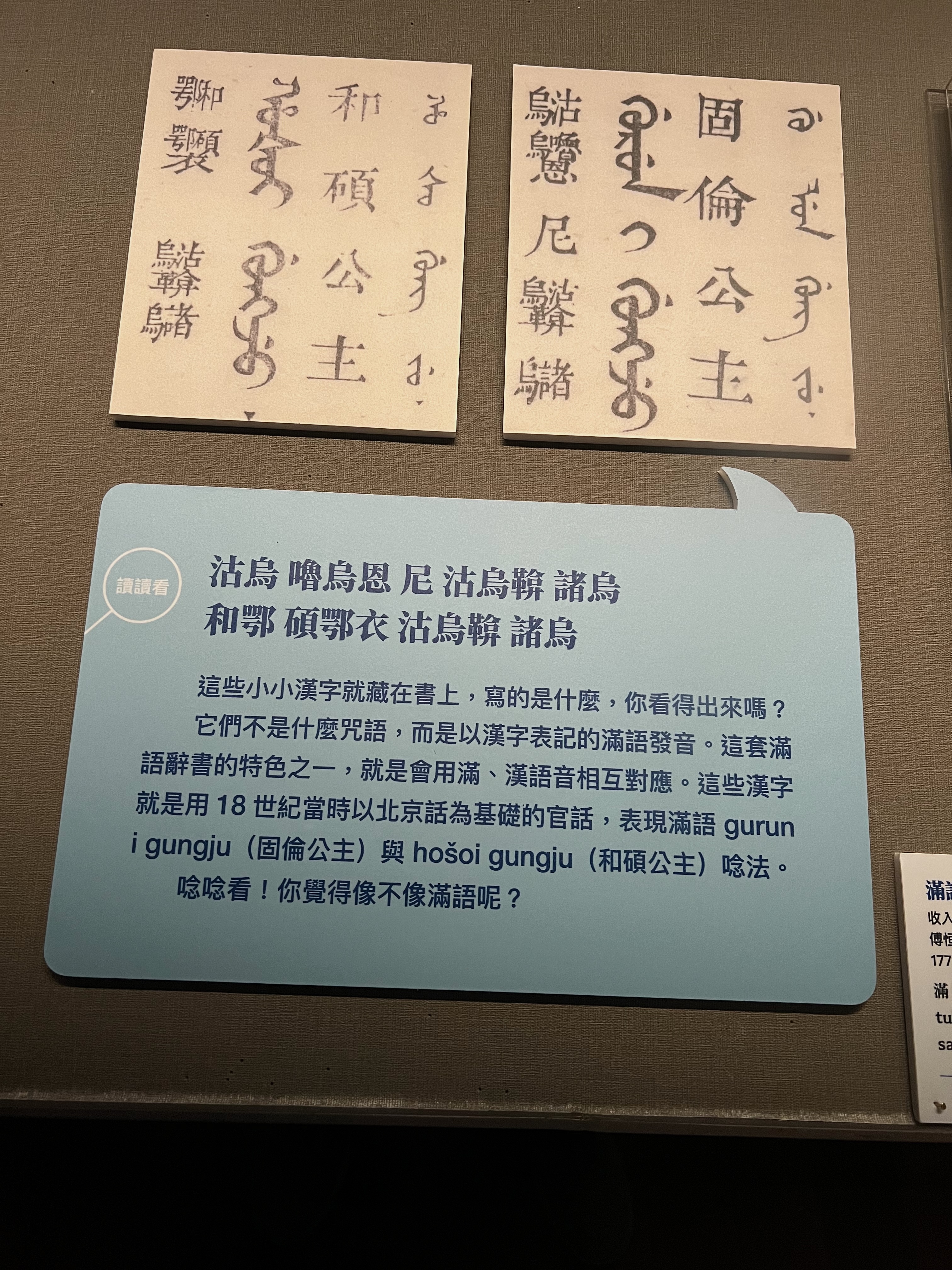
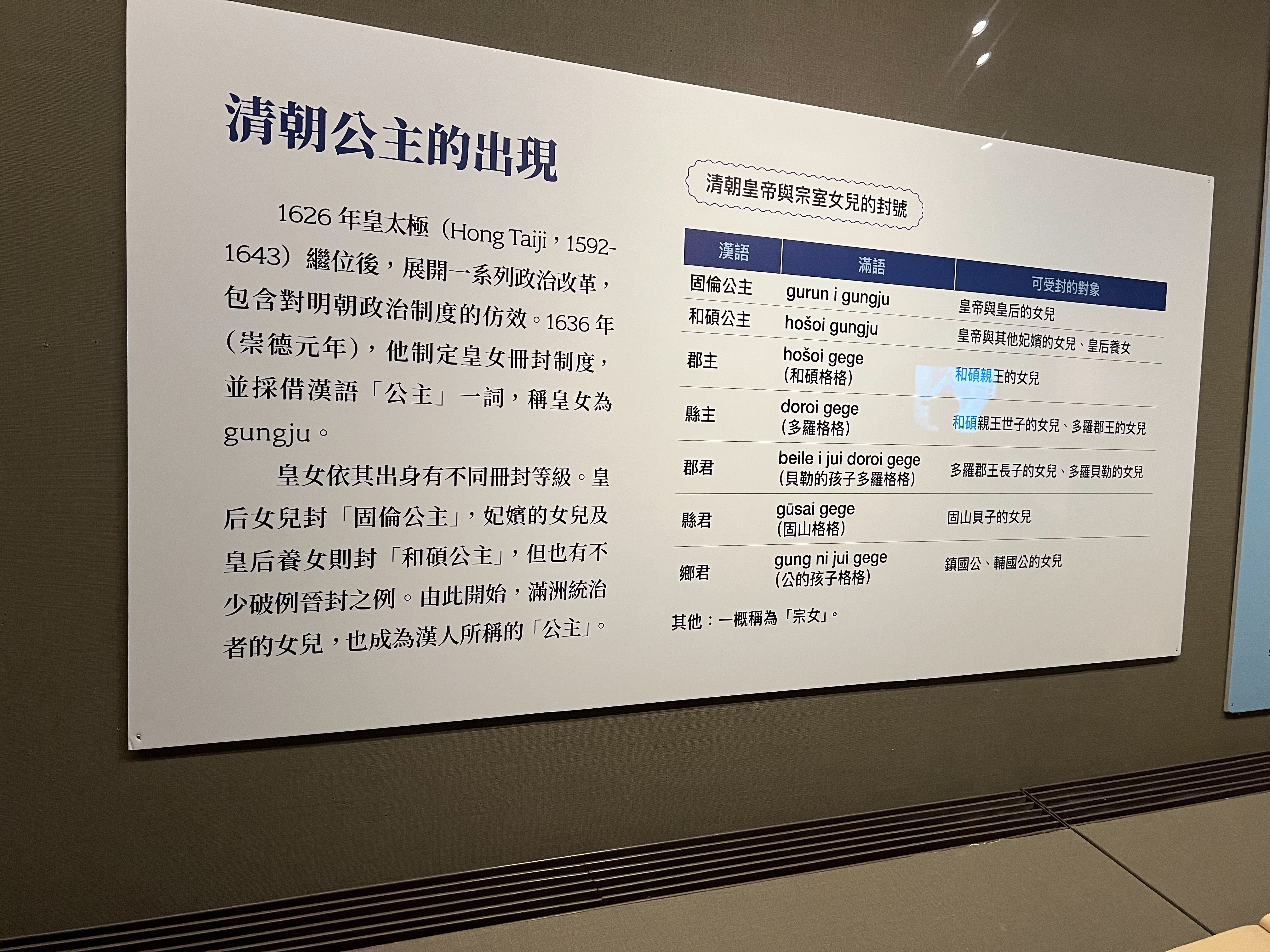
Qing Dynasty Princess
The next day, I finally had the opportunity to accompany Uncle Wang, Sis Jing, and their goddaughter Nianyu to Yangmingshan to pay respects at the graves of Uncle Wang’s parents. The cemetery was solemn and elegant, with the words “Everlasting Teachings” inscribed above the tombstone. Mr. Wang Shoukang devoted his life to promoting the Mandarin language, making this inscription a fitting tribute. With Mandarin now fully established in Taiwan, Professor Wang’s spirit would surely find comfort.
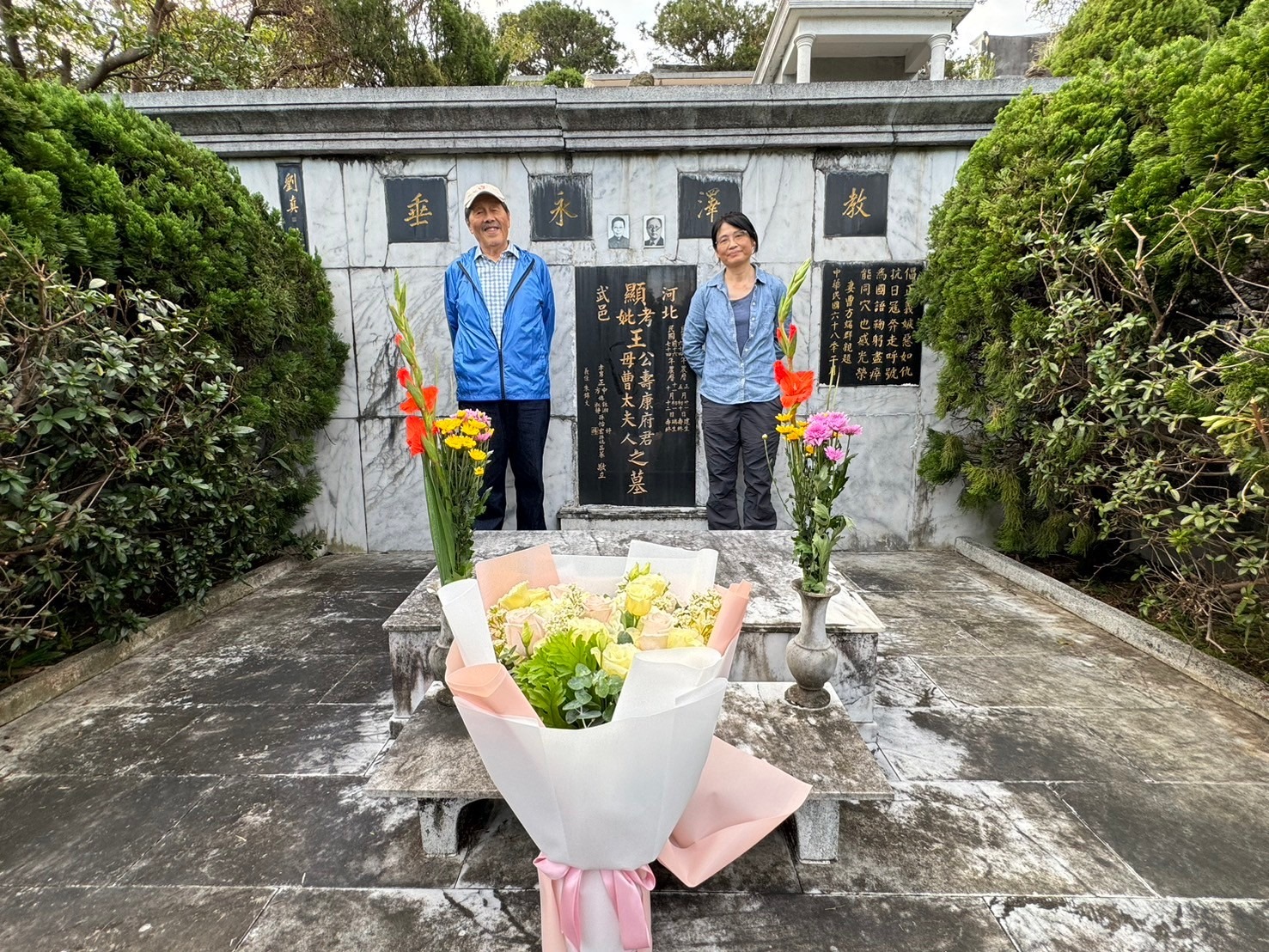
Paying Respects at the Grave of Wang Shoukang and His Wife with Uncle Wang
I asked Uncle Wang many questions about his father and his friends, as well as the stories of those who, together with his father, went to Taiwan to promote the national language. Uncle Wang and many of his father’s friends who remained on the mainland also lost contact. This time, he also learned from me that two of his best friends who stayed on the mainland had died under abnormal circumstances during the Cultural Revolution in 1968.
Uncle Wang (or Director Wang) is not only humorous and witty but also highly knowledgeable. I thoroughly enjoyed discussing current affairs with him and Sister Jing. Our conversations ranged from international geopolitics, Marxism and capitalism, and U.S.-China relations, to Taiwan’s current state, human nature, the feasibility of relocating TSMC’s production to the U.S., and the impact of the U.S.’s restrictions on NVIDIA’s AI chips in China. We left no topic untouched, and the discussions were exhilarating. Uncle Wang even arranged for me to meet Lin Wei, the editor-in-chief of Mandarin Daily News. The people Uncle Wang introduced me to were all highly accomplished individuals, yet he did so with such casual ease that I couldn’t resist teasing him about his “Versailles” flair.
The following day, I visited the Mandarin Daily News headquarters. The security guard at the reception desk and the young man who later escorted me upstairs both looked at me with admiration when they heard I was meeting the chairman and editor-in-chief, which made me feel slightly flattered. The chairman and editor-in-chief were very earnest in asking about our nonprofit organization and shared their knowledge about the promotion of Mandarin in Taiwan. Mandarin Daily News is a publication with Chinese text accompanied by Zhuyin phonetic symbols, targeting middle school students. Mandarin is already fully established in Taiwan. Lin Wei’s father, Lin Liang, was a former president of Mandarin Daily News and a renowned Taiwanese children’s literature writer whose essays and children’s stories are widely celebrated in Taiwan. Lin Wei gifted me a commemorative plate marking the 50th anniversary of the newspaper’s founding. We agreed to share resources in our future work.
However, behind their warm reception, I couldn’t help but feel a sense of melancholy. Decades later, the new generation, including many middle-aged people, no longer know the origins or history of Mandarin Daily News. They’ve also forgotten the many efforts made by earlier generations to promote the Mandarin language. Beyond my surprise, this realization deepened my conviction about the importance of the work we are doing today.
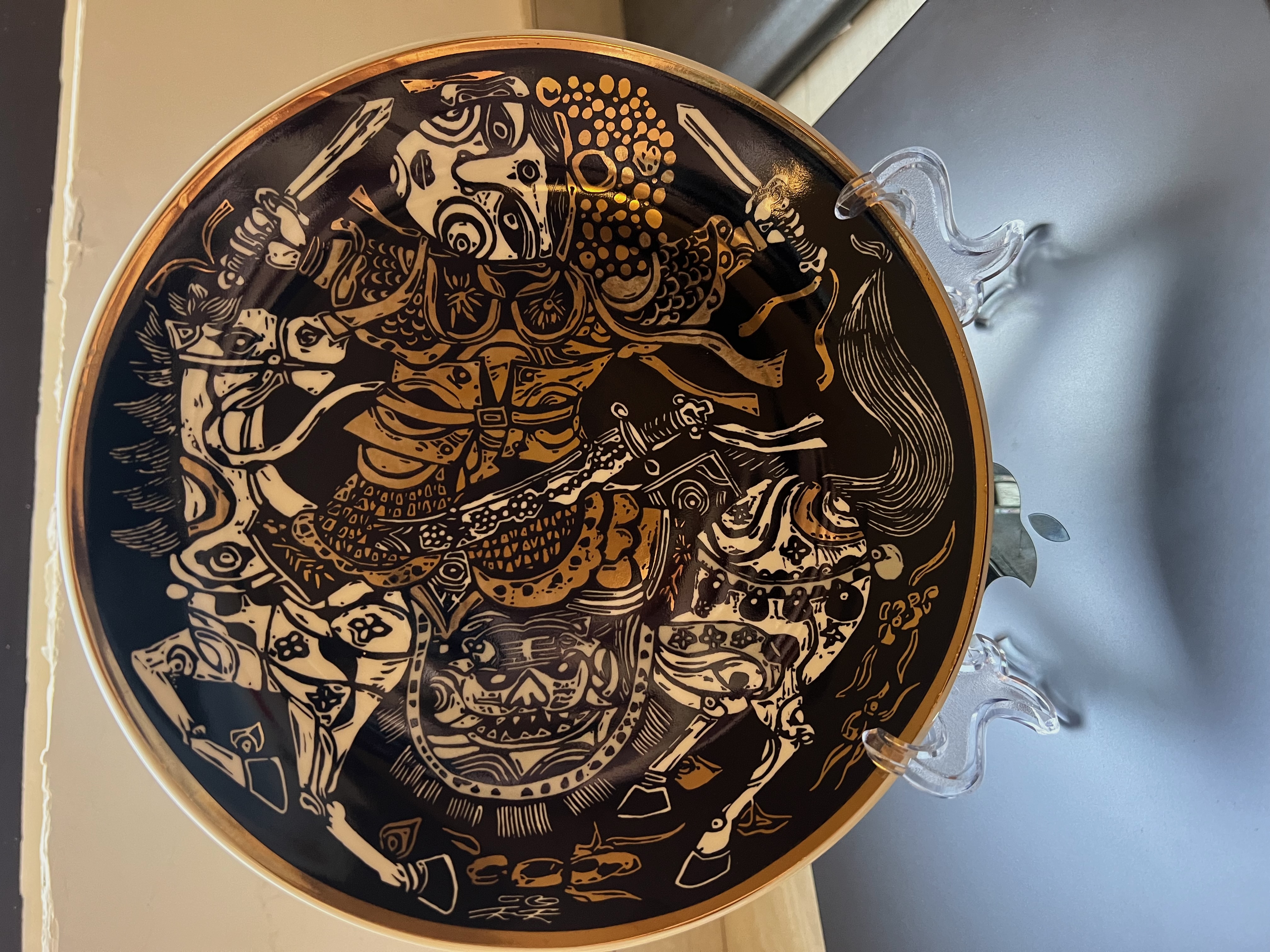
The front side of Mandarin Daily 50th Anniversary Commemorative Plate
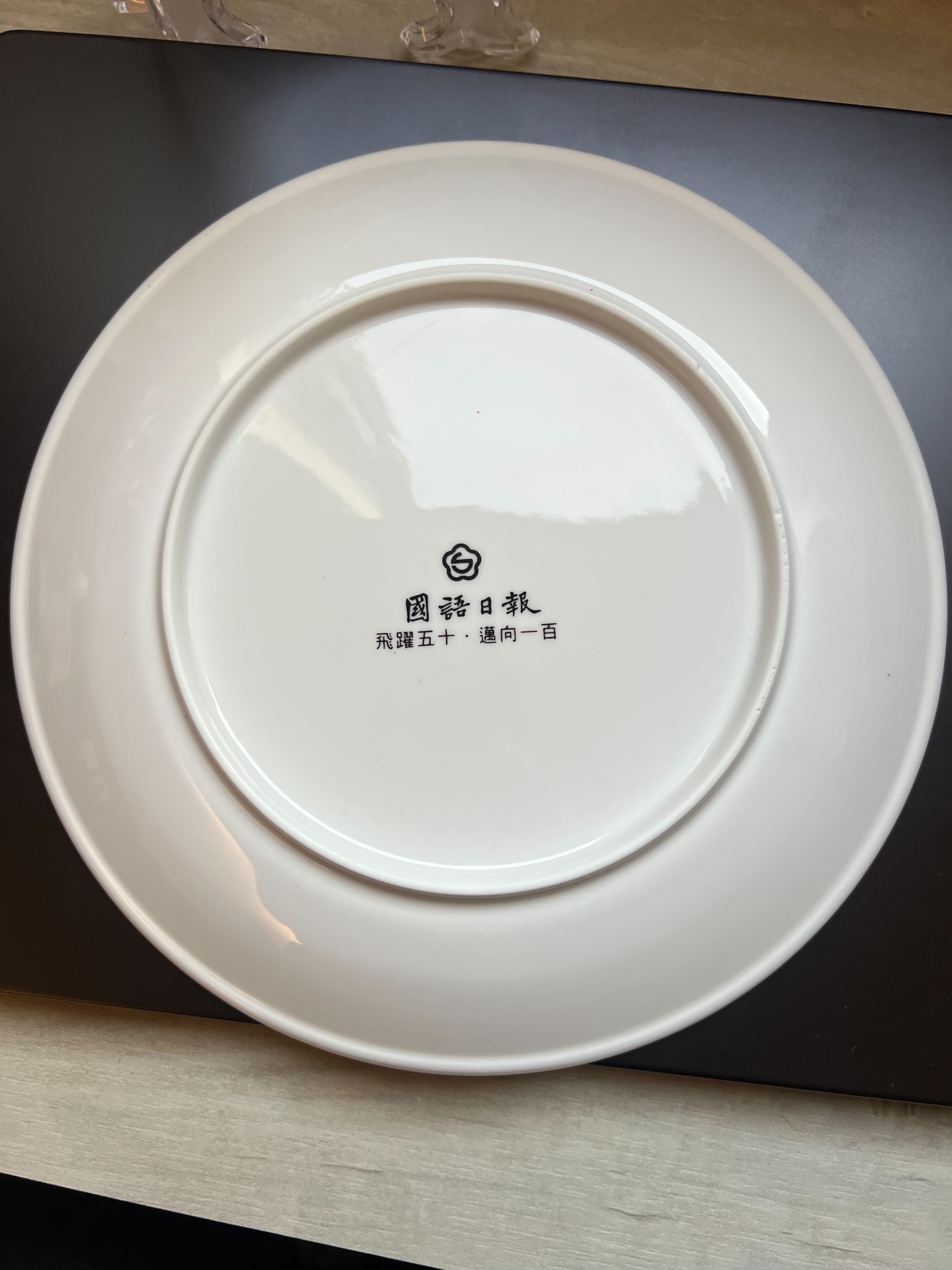
The back side of Mandarin Daily 50th Anniversary Commemorative Plate
The next day, I went to the city where Uncle Wang and Sis Jing live and conducted an online interview with Wang Yun (for details of this interview, please see Wang Yun’s Please refer to Mr. Peter Wang’s article “Perseverance and Commitment - A Remote Dialogue with Mr. Peter Wang” ). During the conversation, an interesting point came up: comparing traditional and simplified Chinese characters—does advanced technology make complex strokes less of a concern? As a pictographic language, Chinese embeds concepts in each part of its characters, which is fully evident in traditional characters. This means that traditional characters carry more information. When my son was young, he attended a bilingual kindergarten in the United States. His teacher, a Taiwanese woman with a master’s degree in early childhood education, taught the children traditional characters, referring to them as “standard characters.” She said that because they contain more information, they are actually easier to understand, so children don’t find learning them difficult and they have advantages over simplified characters. Now, with the support of new technology, inputting traditional and simplified characters on mobile phones or computers has become equally easy.
Four or five years ago, Uncle Wang introduced us to former Director of the Mandarin Promotion Center, Professor Li Zhenqing, and former Director of the Chinese Language Teaching and Research Institute, Professor Shih-Chang Hsin. Professor Hsin is currently the vice president of National Tsing Hua University in Taiwan. Before this trip to Taiwan, I specifically arranged to meet Professor Xin on the Hsinchu campus of Tsing Hua University. As an alumna of Tsinghua University in Beijing, I didn’t have high expectations before visiting the Hsinchu campus, knowing that Beijing’s Tsinghua Garden was once a Qing Dynasty imperial garden with beautiful scenery. However, this visit gave me a huge surprise! Although the two Tsinghua universities across the strait have developed independently for decades, they share the same motto, emblem, school song, and common history—the Southwest Associated University—as well as the eternal Tsinghua president, Mei Yiqi. It felt so familiar!
Principal Mei holds the distinction of being the greatest modern Chinese university president in my heart. During his tenure, he dedicated over a decade to transforming Tsinghua University in Beijing from a preparatory school for studying in the United States into one of the world’s top universities. During the eight-year War of Resistance Against Japan, he led Southwest Associated University to achieve remarkable accomplishments in teaching and education that future generations could scarcely surpass. In the school history exhibition, I discovered Principal Mei’s most renowned educational philosophy: “A university is not defined by its grand buildings, but by its great teachers.”
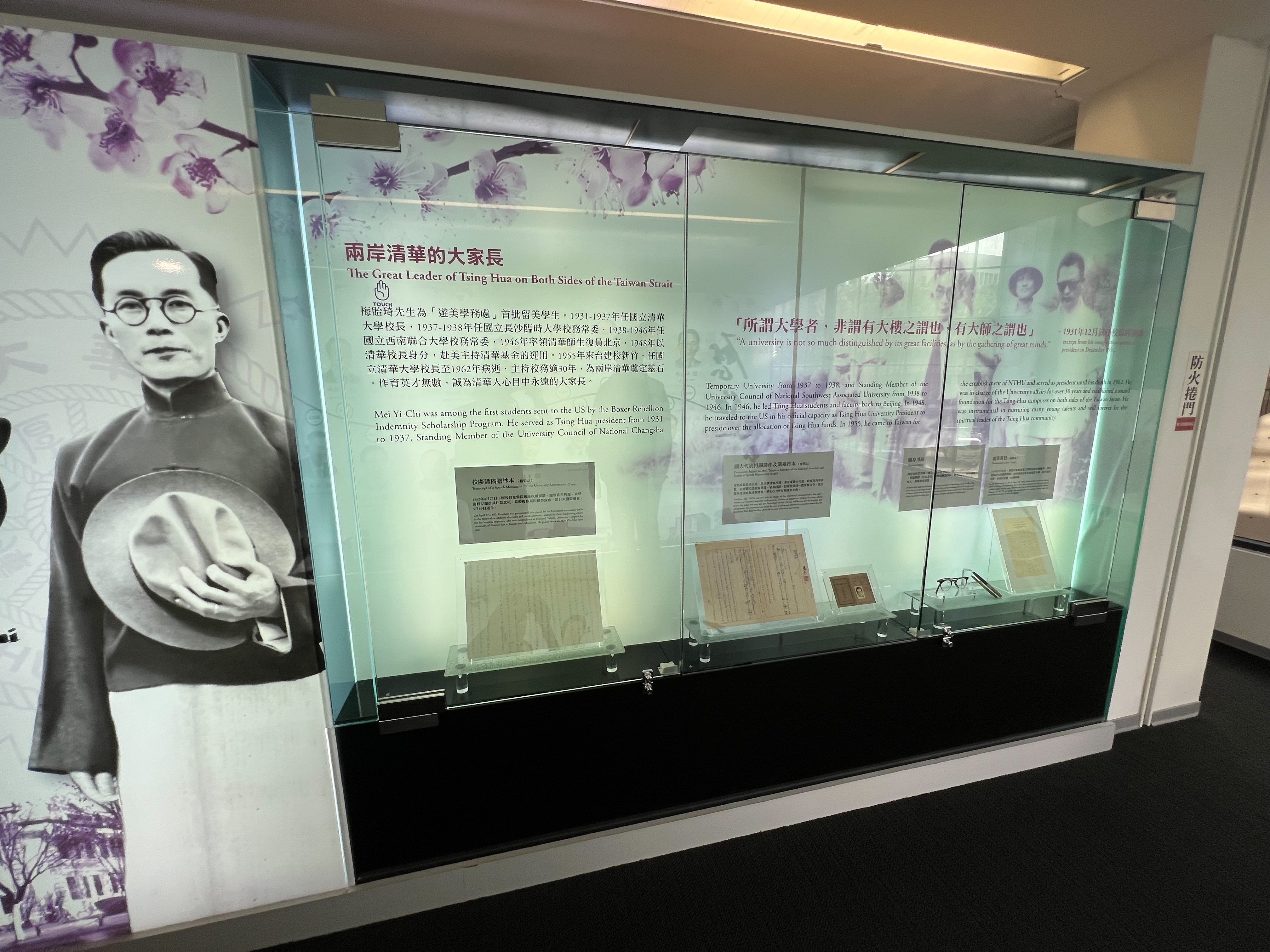
The Educational Philosophy of Mei Yiqi, Principal of Tsinghua University
Professor Hsin and I hit it off immediately. He took me to see the school history exhibition, the Yuehan Pavilion, and we visited President Mei’s mausoleum, Meiyuan. Tsing Hua University in Hsinchu and Tsinghua University in Beijing have deep exchanges. Unlike other universities, the two Tsinghua universities across the strait interact not only at the university level but also maintain connections at the departmental level.
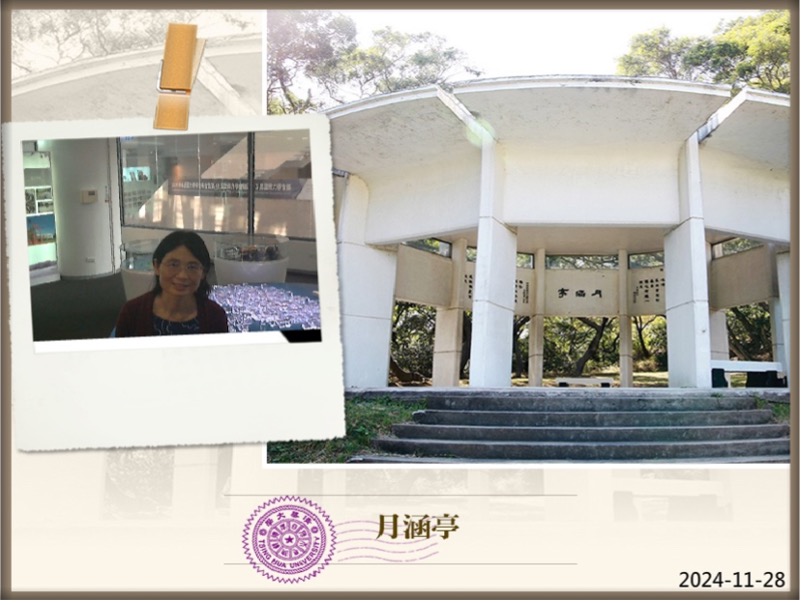
“Yuehan Pavilion” is named after Mei Yiqi, whose courtesy name (字) was Yuehan.
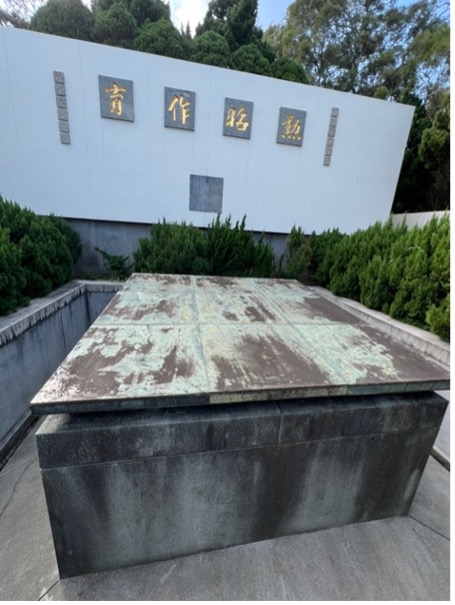
Meiyuan refers to the mausoleum of Mei Yiqi, the “eternal president of Tsinghua University.”
I was delighted that everyone I visited gifted me their publications—newspapers or books—which, for someone who loves books above all else, is the best gift. Of course, what’s even more important is that these gifts, in the common form of Mandarin, serve to closely connect all Chinese people. My trip to Taipei, whether it was hearing the familiar accents upon stepping onto this land, seeing the Chinese signs that made me feel at home, listening to Uncle Wang’s vivid recounting of our predecessors’ stories, celebrating the centennial of the National Palace Museum shared by both sides of the strait, or experiencing the two universities named “Tsinghua,” as well as the shared dedication to Chinese culture from all my interviewees, deeply moved me.
How to follow in the footsteps of our predecessors is what I have pondered the most. Taiwan, we will definitely return!
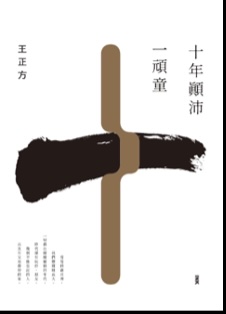
Ten Years of Wandering: A Mischievous Boy
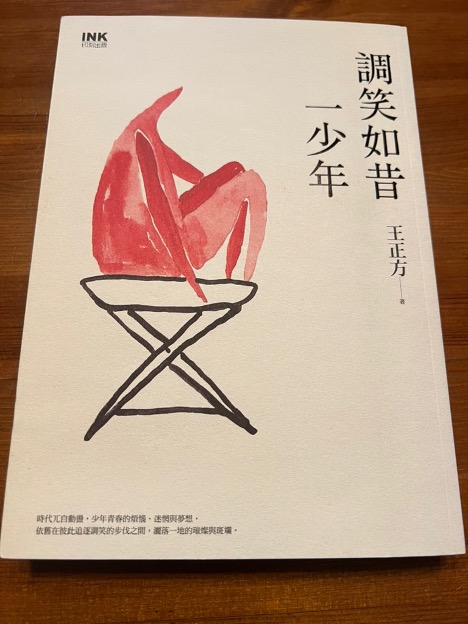
Playful as Ever: A Young Man
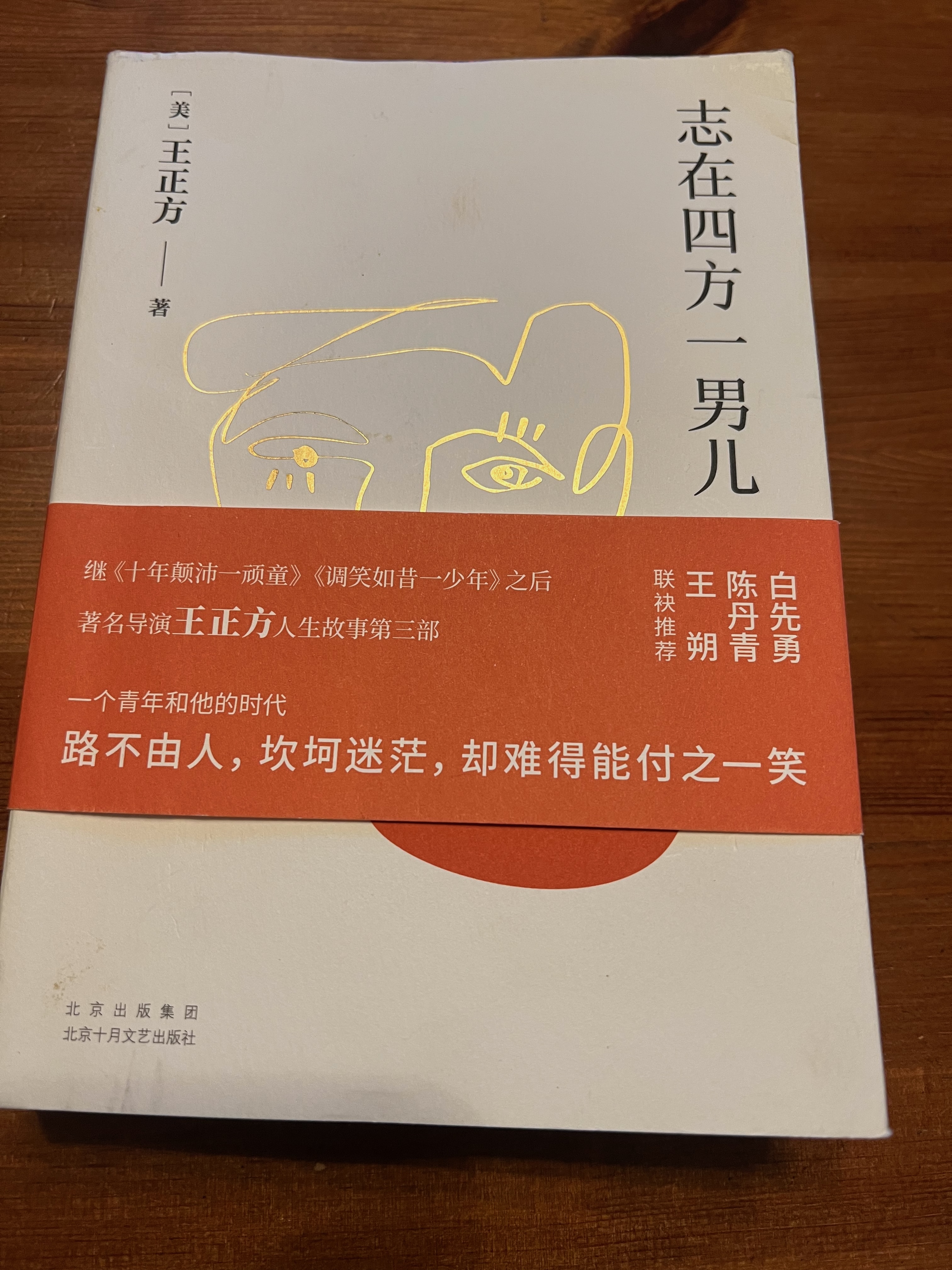
Ambitious Across the World: A True Man
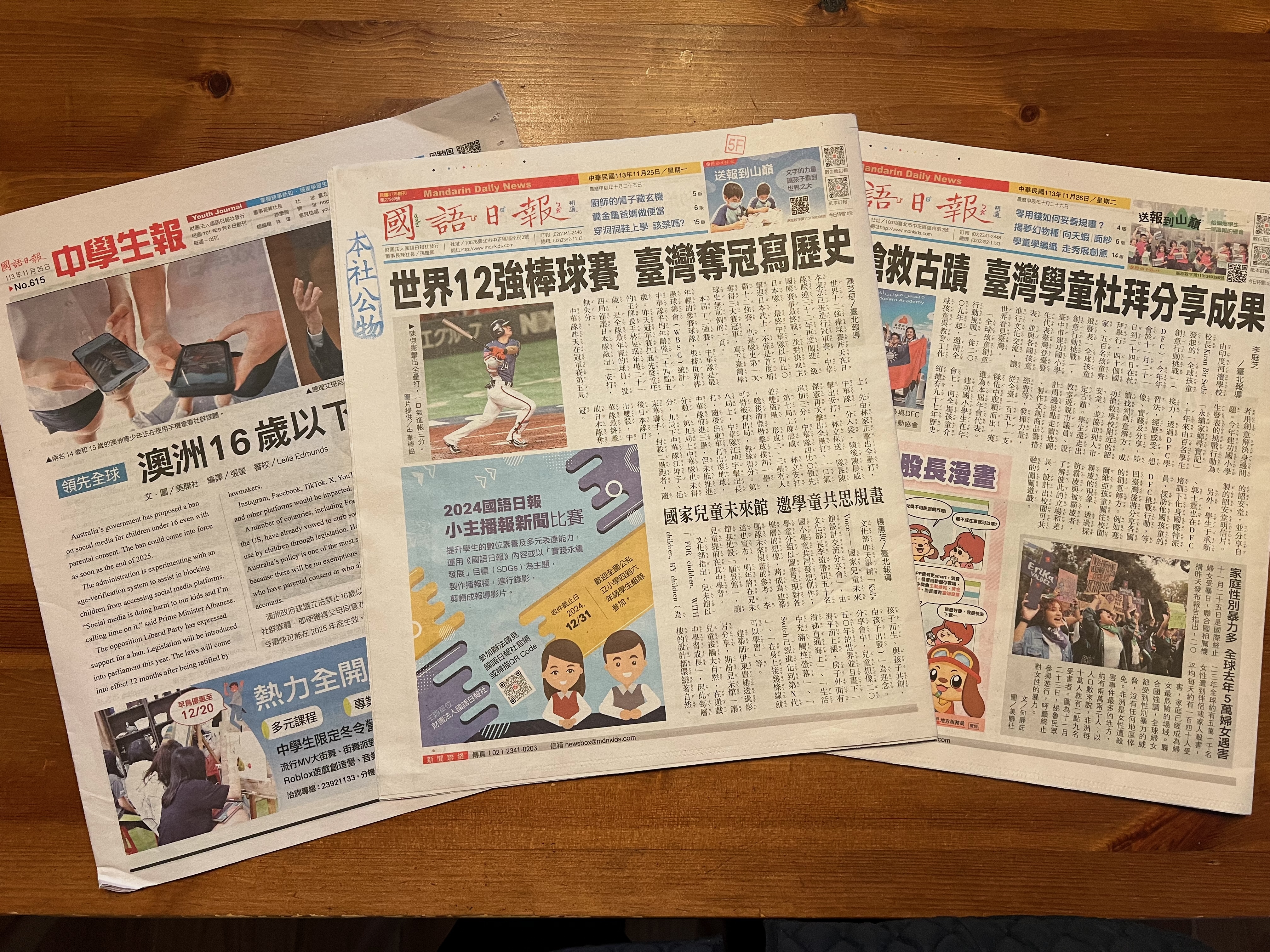
Mandarin Daily
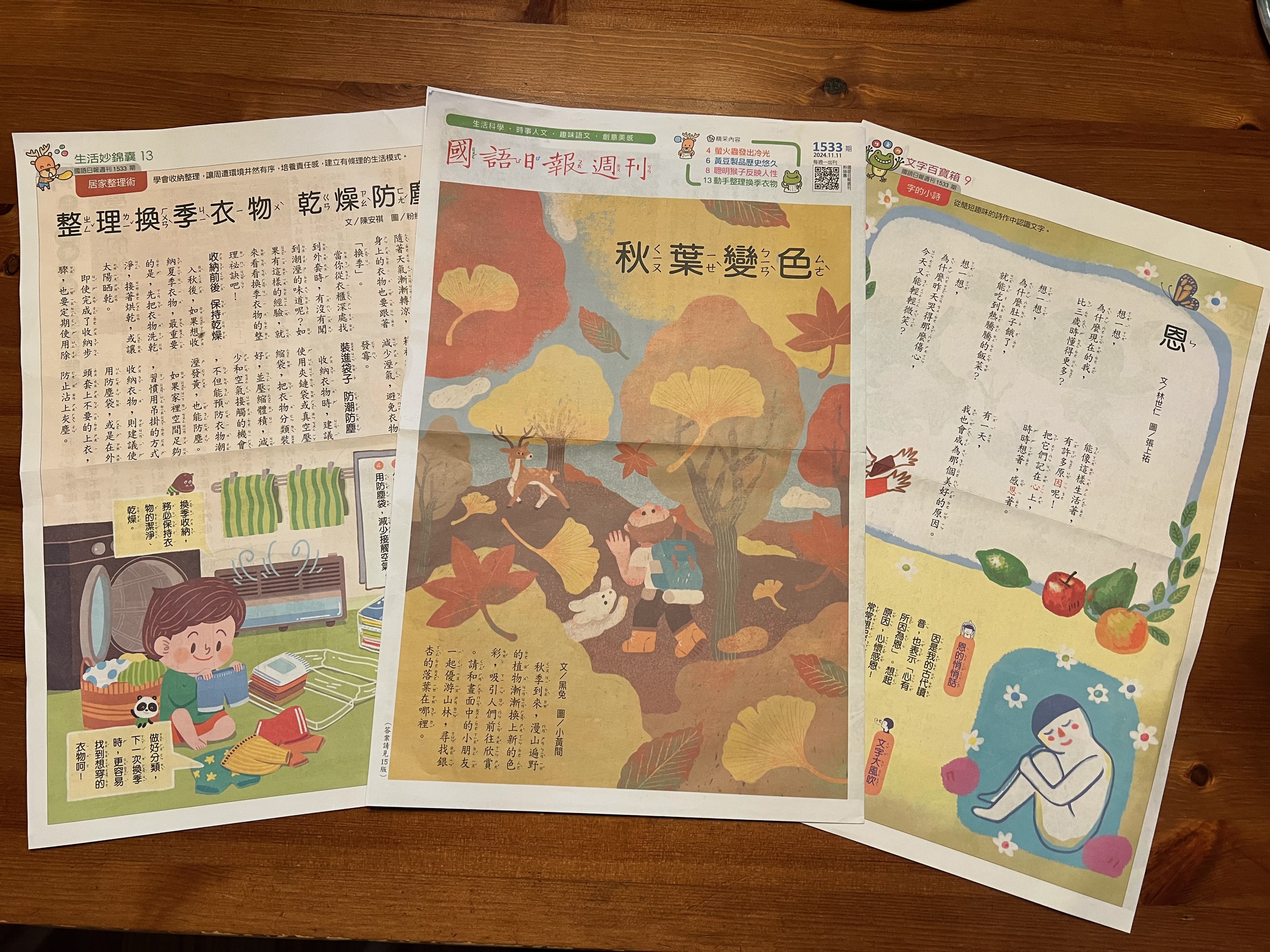
Mandarin Daily Weekly
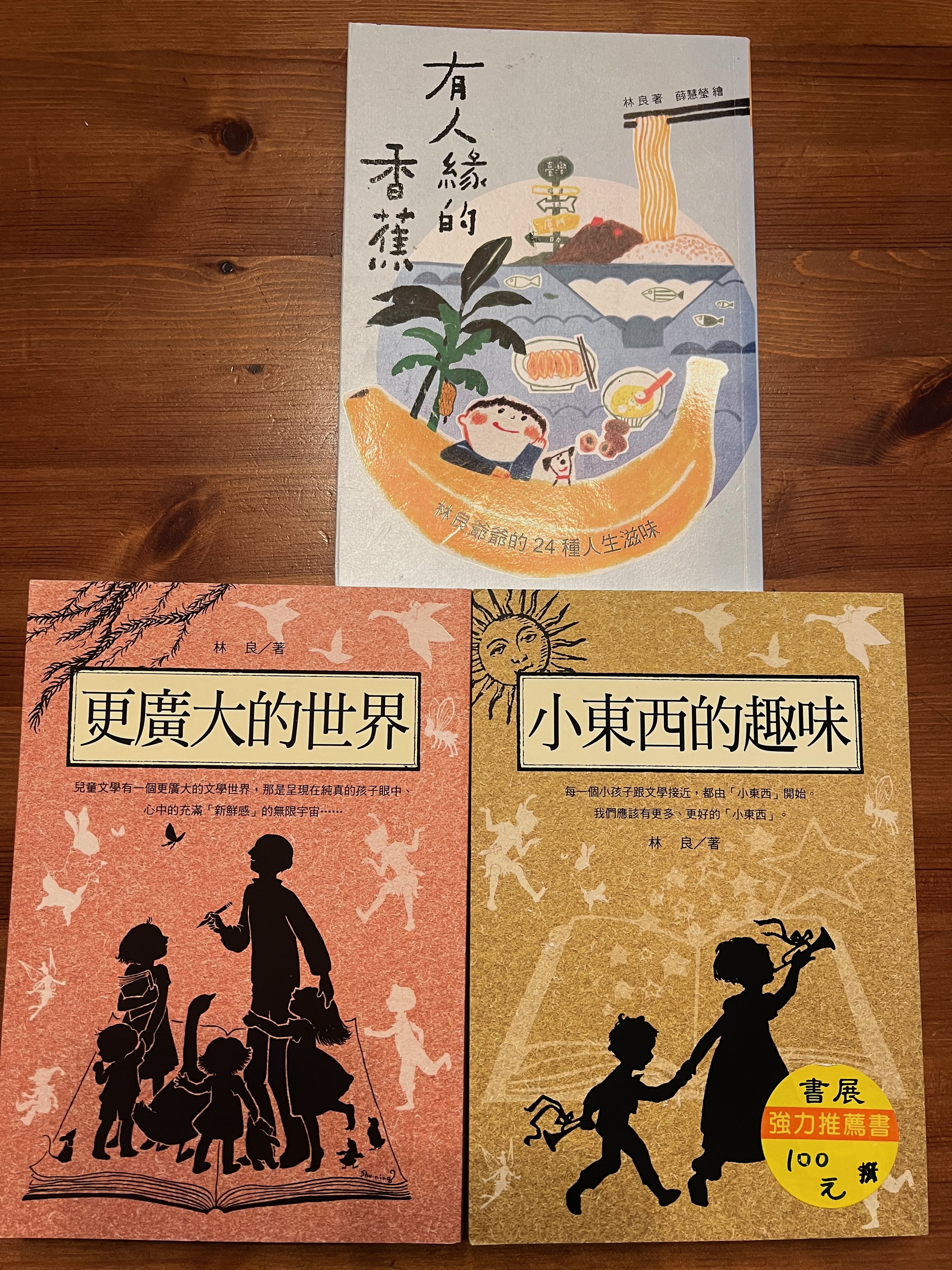
Taiwanese renowned children’s literature author Lin Liang’s representive works.
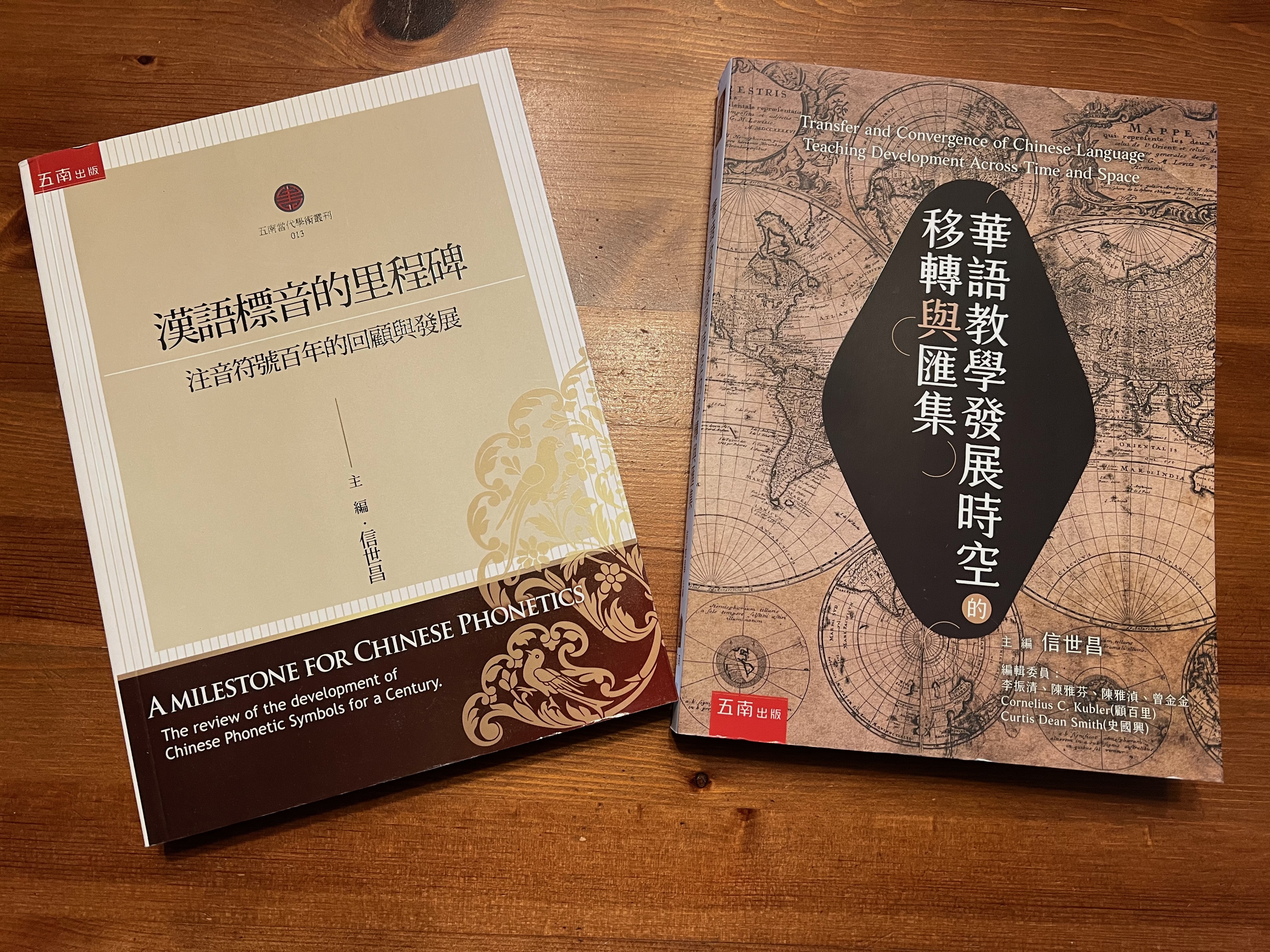
Publications by Professor Xin Shichang, Vice President of National Tsinghua University in Taiwan
This Thanksgiving, I am especially grateful for the legacy of Mandarin left to us by our predecessors, grateful for the connection with Uncle Wang, grateful for the insights gained from the trip to Taiwan, and even more grateful to the family, friends, and like-minded individuals who have continuously supported our website and this cause.
